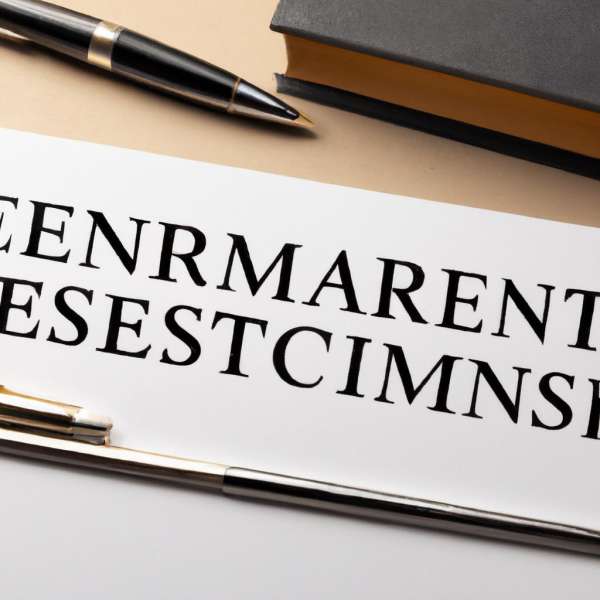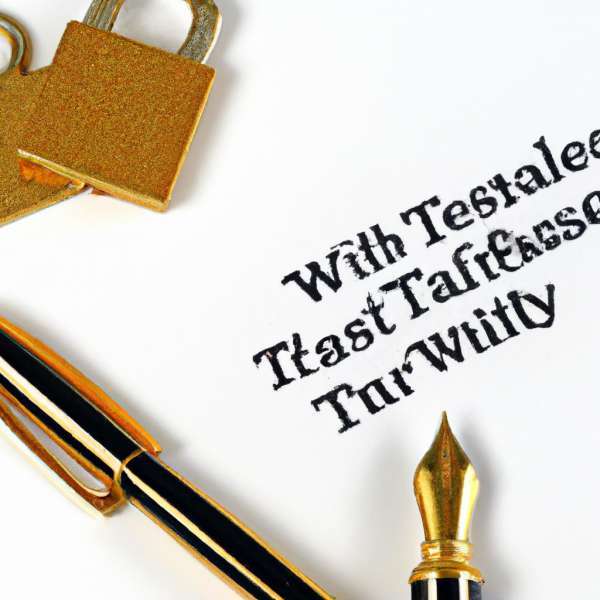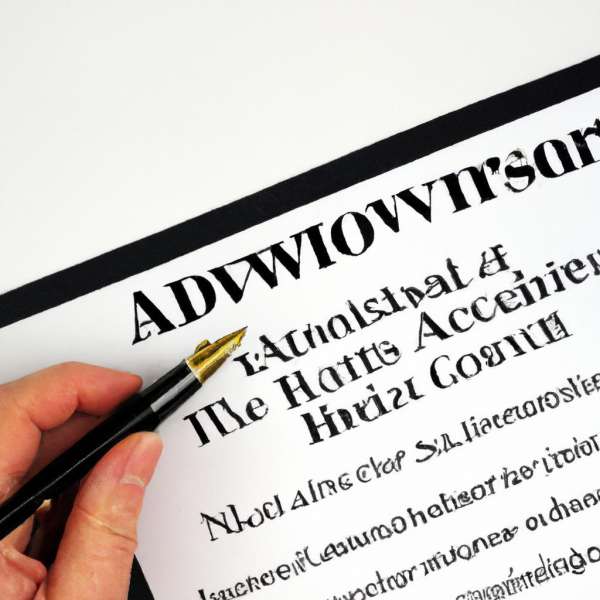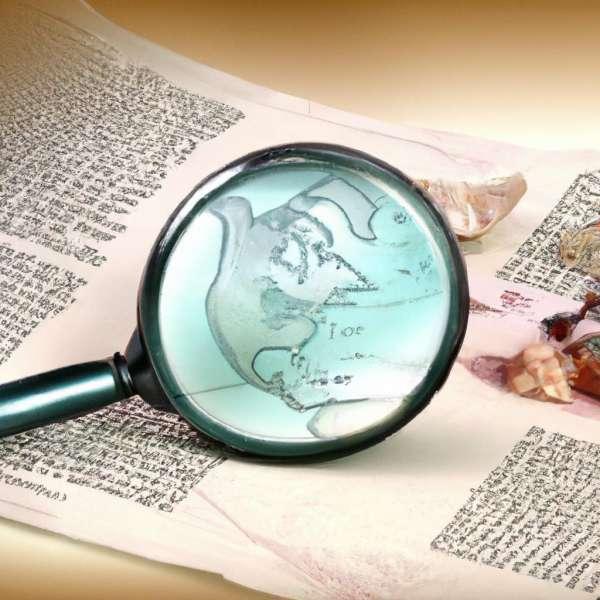In the tapestry of our lives, the threads of memories, relationships, and aspirations intertwine to create a unique narrative. Yet, as we navigate the journey of existence, the inevitability of change prompts us to consider a crucial question: what legacy will we leave behind? Enter the realm of estate planning, a thoughtful process that empowers individuals to shape their future and protect what matters most. At the heart of this endeavor lies a collection of legal documents, each serving as a compass that guides our intentions and ensures our wishes are honored. From wills to trusts, powers of attorney to advanced directives, these documents are not merely pieces of paper; they are the building blocks of security, clarity, and peace of mind. As we delve into the multifaceted role of legal documents in estate planning, we uncover how they serve as instruments of protection, communication, and empowerment, ultimately allowing us to craft a legacy that reflects our true selves.
Understanding the Essential Legal Documents for Estate Planning
When embarking on the journey of estate planning, several essential legal documents come into play, each serving a unique purpose while collectively ensuring that your wishes are honored after your passing. The foundation of any robust estate plan begins with a **last will and testament**, which outlines how your assets should be distributed among heirs, stipulates guardianship for minor children, and can even express your final wishes regarding burial or cremation. A properly executed will can help avoid disputes and misunderstandings among family members during an emotionally challenging time.
Another crucial component is the **durable power of attorney**, which grants a designated individual the authority to make financial and legal decisions on your behalf if you become incapacitated. This document ensures that your financial affairs continue to be managed according to your preferences without the need for court intervention. Similarly, a **healthcare proxy** or **advance healthcare directive** outlines your medical treatment wishes, designating someone to make healthcare decisions for you if you are unable to do so. These documents not only safeguard your interests but also relieve your loved ones from the burden of making difficult choices during distressing moments.
For those seeking to minimize estate taxes and facilitate a more seamless transfer of assets, establishing **trusts** can be an effective strategy. A trust holds your assets for the benefit of specified beneficiaries, allowing for greater control over when and how those assets are distributed. Common types of trusts include the **revocable living trust**, which you can modify during your lifetime, and **irrevocable trusts**, which generally cannot be changed after establishment. This flexibility can be a vital part of your estate plan, ensuring your financial legacies are protected and efficiently passed on.
| Document Type | Purpose |
|---|---|
| Last Will and Testament | Distributes assets and names guardians for children. |
| Durable Power of Attorney | Assigns authority for financial decisions during incapacity. |
| Healthcare Proxy | Designates someone to make medical decisions on your behalf. |
| Trusts | Holds and manages assets for beneficiaries, minimizing taxes. |

The Importance of Wills and Trusts in Safeguarding Your Legacy
Creating a robust estate plan is not just a prudent choice; it’s a profound statement of your values, ambitions, and love for those left behind. At the heart of this planning are wills and trusts, powerful legal documents that play a pivotal role in ensuring your legacy is safeguarded and your wishes honored. By establishing clear directives, you can minimize conflict among loved ones during a time of grief, and provide a road map for the distribution of your assets.
Wills serve as a formal declaration of how you wish to allocate your possessions after passing. They can outline:
- Asset Distribution: Specify who receives which assets, from your prized possessions to real estate.
- Guardianship: Appoint guardians for minor children, ensuring their continued care in your absence.
- Executor Role: Designate an executor, a trusted individual responsible for executing your final wishes and managing your estate.
Trusts, on the other hand, offer a more dynamic approach. Unlike wills, assets placed in a trust can be managed during your lifetime and can bypass the probate process, allowing for:
- Immediate Asset Distribution: Beneficiaries can access assets without waiting for probate to conclude.
- Privacy: Trusts are not public documents, keeping your affairs confidential.
- Tax Benefits: Under certain conditions, trusts can help reduce estate taxes, maximizing the wealth passed on to heirs.
| Document Type | Key Benefits |
|---|---|
| Will | Defines asset distribution, appoints guardians, names executor |
| Trust | Bypasses probate, offers privacy, potential tax advantages |
the strategic use of wills and trusts not only clarifies your intentions but also preserves the harmony of your family, allowing your legacy to flourish as per your aspirations. As you navigate the complexities of life, these legal instruments will safeguard the values and bonds you cherish.

Navigating Healthcare Directives and Powers of Attorney
When planning for the future, two crucial components often come into play: healthcare directives and powers of attorney. These legal documents empower individuals to make critical decisions about their health and finances in the event they become unable to do so. Understanding their differences and functionalities is essential for ensuring your wishes are honored and your loved ones are supported during challenging times.
Healthcare directives, commonly known as advance directives or living wills, articulate your preferences regarding medical treatment when you cannot communicate them. This document can outline specific instructions about life-sustaining treatments, pain management, and organ donation. On the other hand, a power of attorney for healthcare allows you to designate someone—often referred to as a healthcare proxy— to make medical decisions on your behalf. This trusted individual should be well-informed about your preferences and values to advocate for you effectively.
Having both documents in place provides a safety net. Here’s a glance at the contrasting roles they play:
| Aspect | Healthcare Directive | Power of Attorney for Healthcare |
|---|---|---|
| Definition | Specifies treatment preferences | Designates a decision-maker |
| Control | Owner-controlled directives | Handles situation-based decisions |
| Flexibility | Less adaptable once established | Fluid decisions based on circumstances |
By integrating healthcare directives and powers of attorney into your estate planning strategy, you ensure that your medical and personal wishes are respected, minimizing the burden on your family during emotionally charged situations. Be proactive in these preparations—creating clarity and peace of mind for yourself and your loved ones.

Strategies for Regularly Updating Your Estate Planning Documents
To ensure your estate planning documents remain relevant and effective, it’s essential to establish a routine for reviewing and updating them. One effective strategy is to set calendar reminders on a yearly basis to revisit your documents. This could coincide with a significant date, such as your birthday or the start of a new year, making it a clear and consistent trigger for evaluation. During this review, you should check for any changes in your personal circumstances or relationships that could influence your estate plan.
Consider the following key changes that may necessitate an update:
- Marital Status: Changes such as marriage, divorce, or the death of a spouse can significantly alter your wishes.
- Beneficiary Changes: Births, deaths, or shifts in your relationships with beneficiaries should prompt updates.
- Asset Changes: Acquiring or selling significant assets, such as property or investments, requires an update to ensure proper distribution.
- Laws and Regulations: Changes in estate tax laws or retirement account regulations may necessitate a revision of your estate plan.
Additionally, involving a legal professional can greatly enhance the process. An attorney can help ensure all important documents, such as wills, trusts, and powers of attorney, are compliant with current laws and remain effective. Schedule periodic consultations—perhaps every few years or after major life events—to benefit from their expertise.
Here’s a simple table to illustrate a potential review timeline:
| Timeframe | Activities |
|---|---|
| Annually | Review personal circumstances and financial assets. |
| After Major Life Events | Consult an attorney for updates. |
| Every 3-5 Years | Conduct a comprehensive review of all your documents. |
By establishing a structured approach and remaining vigilant about changes in your life and the law, you can ensure that your estate planning documents accurately reflect your intentions and provide peace of mind for both you and your loved ones.
In Summary
the intricate tapestry of estate planning is woven together by the essential threads of legal documents. From wills to trusts, each instrument plays a pivotal role in ensuring that your wishes are honored and your legacy is safeguarded. As we have explored, these documents not only serve a practical function but also provide peace of mind, allowing you to navigate the uncertainties of the future with confidence.
While the process may seem daunting, understanding the purpose and significance of each legal document can empower you to make informed decisions that reflect your values and priorities. As you embark on this journey, consider consulting a legal professional to tailor your estate plan to your unique circumstances. After all, in the realm of estate planning, clarity and preparation are your best allies. With the right legal foundation, you can create a lasting impact for generations to come, ensuring that your story continues on your terms.


